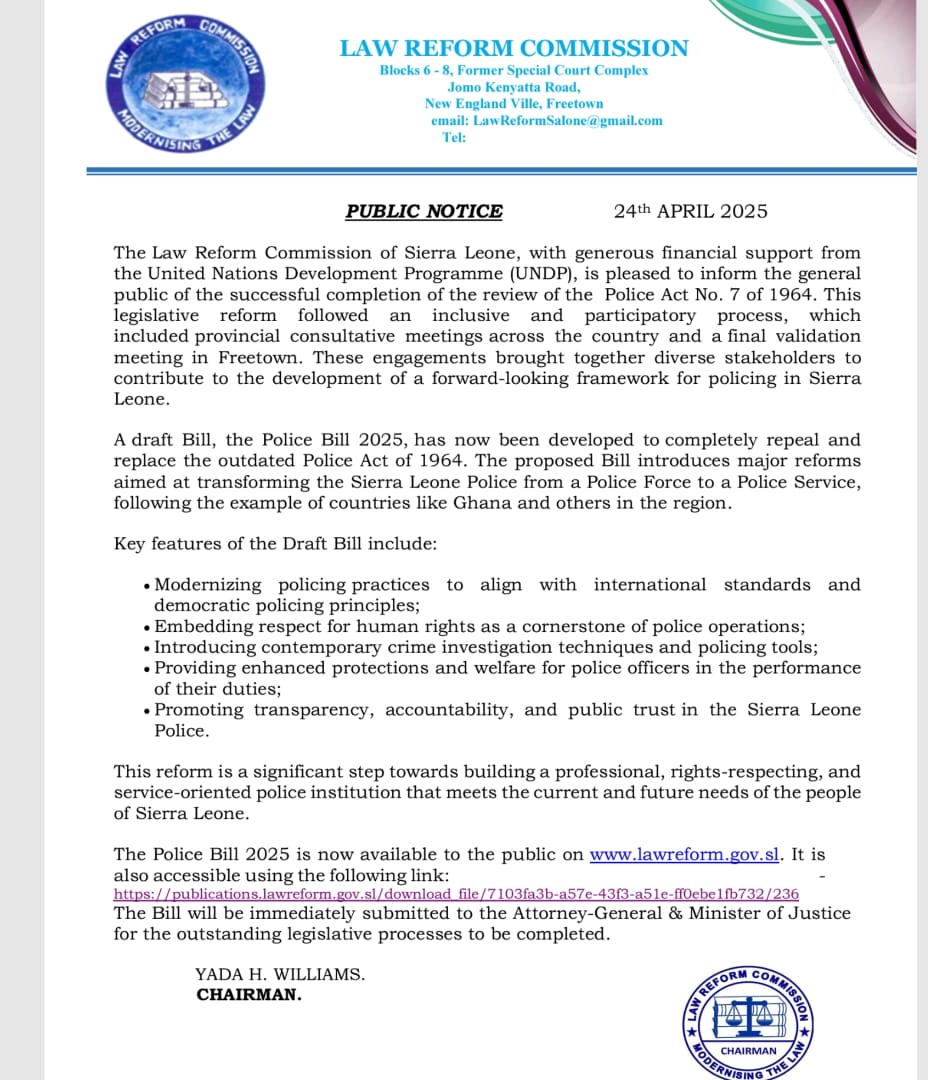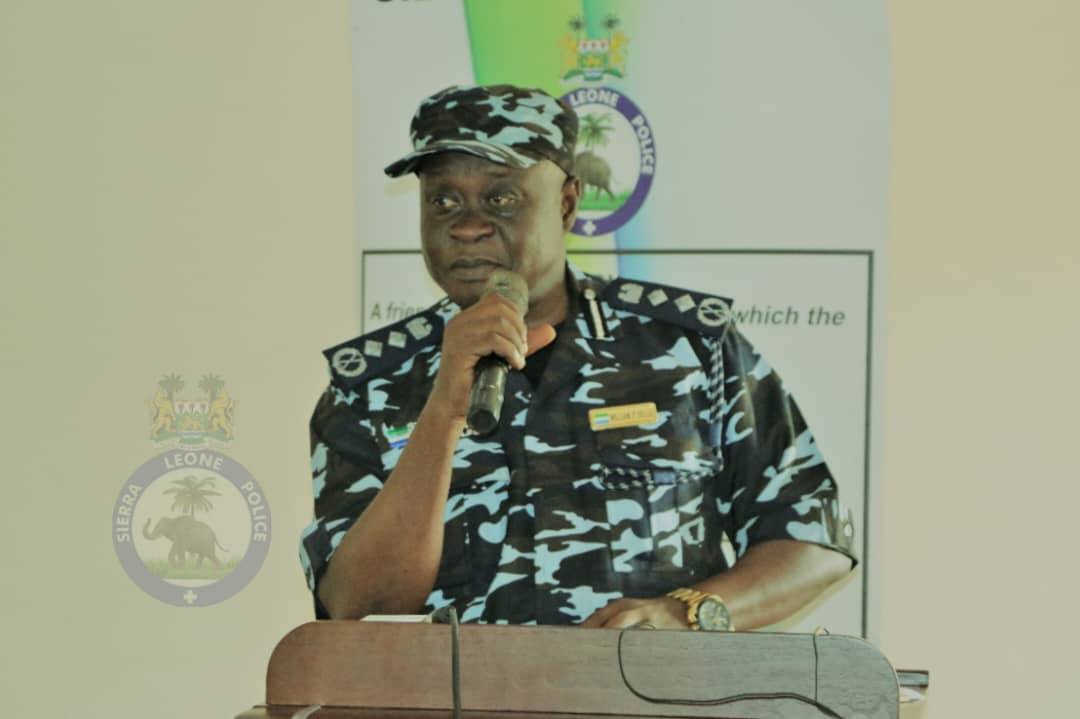The Law Reform Commission of Sierra Leone has on Wednesday, 24th April, 2025 announced the successful completion of its comprehensive review of the Police Act No.7 of 1964.
The pivotal legislative reform was made possible through generous financial support from the United Nations Development Programme (UNDP).
As confirmed by the Commission, the review process involved extensive consultations across the country, incorporating provincial meetings and a final validation meeting in Freetown, affirming that the engagements allowed diverse stakeholders to contribute towards the development of a progressive new framework for policing in Sierra Leone.
As a result of the collaborative effort, a draft Bill known as the Police Bill 2025 has been formulated. The proposed legislation aimed to repeal and entirely reemplazes the outdated Police Act of 1964.
According to the Commission, the Bill seeks to transform the Sierra Leone Police from a traditional Police Force into a modern Police Service, inspired by successful models from countries such as Ghana.
Key features of the Police Bill 2025 include modernizing policing practices to align with international standards and democratic principles, embedding respect for human rights as a fundamental aspect of police operations, introducing contemporary crime investigation techniques and tools, enhancing protections and welfare for police officers during their duties, and promoting transparency, accountability, and public trust in the Sierra Leone Police.
The commission emphasized that the reform marks a significant step towards establishing a professional, rights-respecting, and service-oriented police institution, capable of meeting the evolving needs of the Sierra Leonean populace.
The Police Bill 2025, according to the Commission, is now publicly available for review at www.lawreform.gov.sl and can also be accessed directly through this link: Police Bill2025 Document.
In conclusion, the Commission affirmed that the Bill will be submitted to the Attorney-General and Minister of Justice for the necessary legislative processes to be finalized.













IF THIS PURPOSE BILL WILL BRING GOOD FORTUNES TO THE PEOPLE OF SIERRA LEONE, THEN WE HAVE NO REASON BUT TO CONCORD.